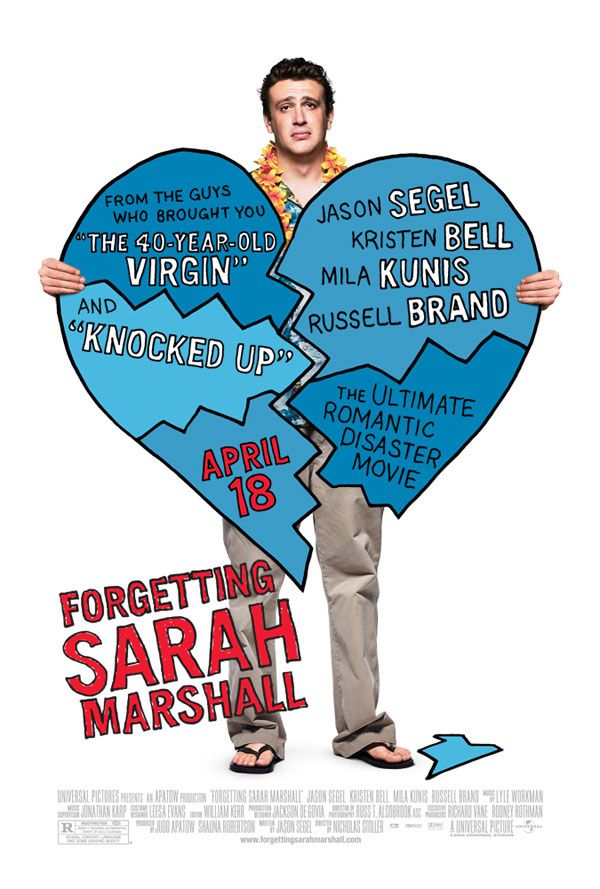 Writer, director, producer Judd Apatow has become a branding name like Mel Brooks or Woody Allen in their heydays. That is an almost sure guarantee of high-quality comedy. “Forgetting Sarah Marshall,” the latest comedy featuring Apatow’s name in the credits, is one of the most laugh-out-loud funny romantic comedies to come out in years.
Writer, director, producer Judd Apatow has become a branding name like Mel Brooks or Woody Allen in their heydays. That is an almost sure guarantee of high-quality comedy. “Forgetting Sarah Marshall,” the latest comedy featuring Apatow’s name in the credits, is one of the most laugh-out-loud funny romantic comedies to come out in years.Apatow, the writer and producer of the short lived but well-regarded TV shows “Freaks and Geeks” and “Undeclared” has been bouncing around Hollywood for years, but in the last three years he has carved out a niche that many will try to duplicate, but few are likely to capture.
Since 2005, Apatow has written and directed “The 40-Year-Old Virgin” and “Knocked Up,” co-written and produced “Walk Hard” and produced “Superbad,” “Drillbit Taylor,” “Talladega Nights” and now “Forgetting Sarah Marshall.” His name is attached to numerous forthcoming films from comedy super stars like Will Ferrell and Adam Sandler.
Of the above films, “Virgin,” “Knocked Up” and “Superbad” and “Sarah Marshall” are connected by a repertoire troupe of performers and writers that go back to Apatow’s TV days. Seth Rogen, who was a supporting player in “Virgin,” got upgraded to leading man status in “Knocked Up,” and Apatow helped Rogen’s screenplay for “Superbad” get made. Now it is Jason Segel's (a co-star of “Knocked Up”) turn to take center stage with “Sarah Marshall.” It is refreshing to see films with relative unknowns getting produced in the Hollywood system.
In “Sarah Marshall,” Segel stars as Peter, a composer of TV show theme music who is devastated when Sarah, his TV star girlfriend (Kristen Bell, “Heroes”) dumps him. In an attempt to get over Sarah he heads to Hawaii only to discover Sarah is there too with her new boyfriend, a lecherous rock star (British comic Russell Brand).
The staff of the Hawaiian resort takes pity on Peter and makes him a part of their extended family. A new possible love interest for Peter comes in the form of front desk manager Rachel (Milla Kunis, “That 70s Show.”)
On a level of plot there are few surprises here, but the approach and writing is fresh with unexpected moments. For example, there’s a surprisingly affective and honest scene where Sarah tells Peter exactly why she left him.
Be forewarned, this is definitely an R-rated comedy. The easily offended should stay away. At the same time, though, this isn’t a lowest-common-denominator type of film with non-stop bottom-of-the barrel humor. Too often films that employ sexual content for humor feel slimy and smarmy.
That is not the case with “Sarah Marshall.” As with “Virgin” and “Knocked Up,” there is a mix of vulgar humor with a sweetness you don’t normally expect from a raunchy comedy. This is what makes the Apatow brand special. These are films that appeal to both men and women for different reasons. It is “guy” humor with a heart that women can appreciate.
There are funny scenes aplenty, but to cite them would ruin the experience. That being said, the puppet rock opera Peter is writing on the side and some snarky parodies of crime shows such as "CSI" are a riot.
The cast is uniformly strong. There isn’t a weak link in the bunch. Segel, who wrote the screenplay, keeps Peter a likable, even lovable schmuck that the audience wants to root for. Kunis, who looked like she wasn't going to survive life after “That 70s Show,” is wonderful here with an assured mix of charm, beauty and comedic timing.
Bell also has a likable screen presence and makes Sarah a sympathetic character. Segel’s script deserves credit for not making Sarah into a one-dimensional heartless witch. Brand has a thankless role of playing the other guy, but clearly relishes playing the bad boy clichés.
Segel’s script takes the time to create funny characters out of bit roles that would normally be glossed over. Bill Hader (“Saturday Night Live,” “Superbad”) is a scene stealer as Peter’s stepbrother who is coaching him from afar via Web cam. Jonah Hill (“Superbad”), as a waiter who is obsessed with Brand’s rock star character, also earns some uncomfortable laughs, as does Jack McBrayer (“30 Rock”) as a newlywed uncomfortable with sex. Paul Rudd (“Knocked Up”) amuses as a very stoned surfing instructor.
In terms of pacing and tightness of story, “Sarah Marshall” may be the best of the Apatow bunch. Too often in the films Apatow directs, he lets scenes run too long with a group of characters clearly improvising their dialogue. “Sarah Marshall” director Nicholas Stoller keeps the film loose and fun. He lets the cast of well-written and well-played characters have space to play but keeps the film focused, and it is all the stronger for it.
 “Fever Pitch” (2005)
“Fever Pitch” (2005) “The Sandlot” (1993)
“The Sandlot” (1993) “A League of Their Own” (1992)
“A League of Their Own” (1992)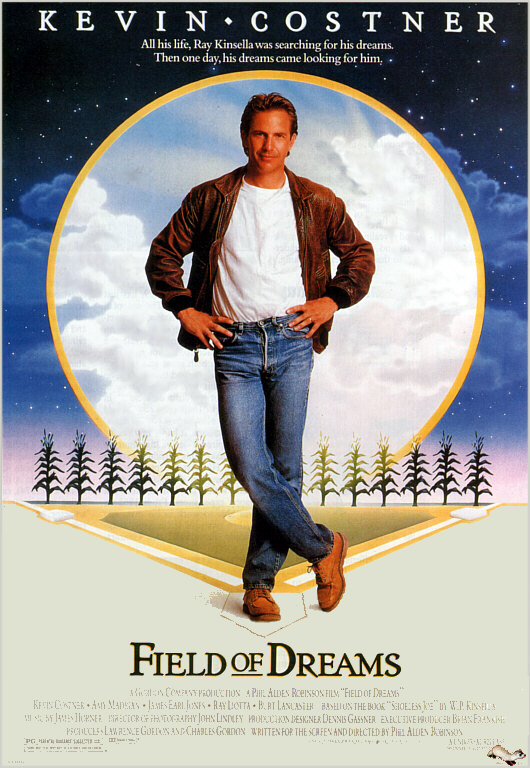 “Field of Dreams” (1989)
“Field of Dreams” (1989)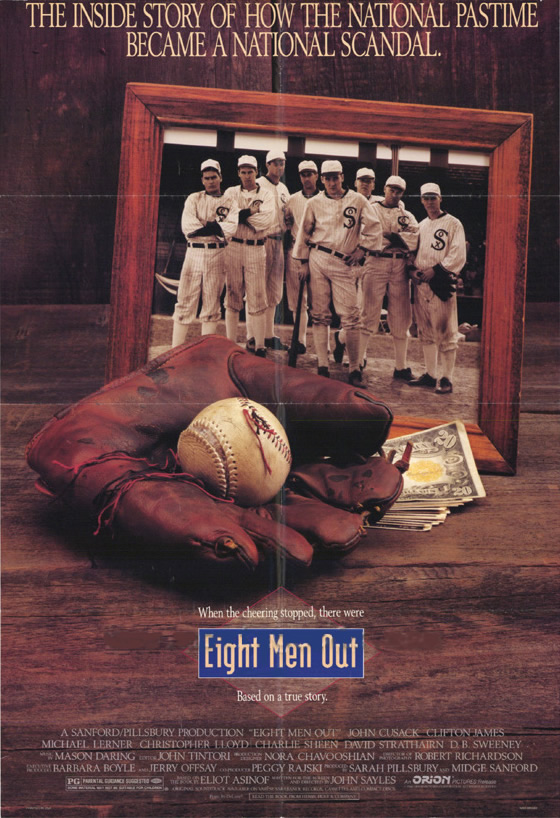 “Eight Men Out” (1988)
“Eight Men Out” (1988)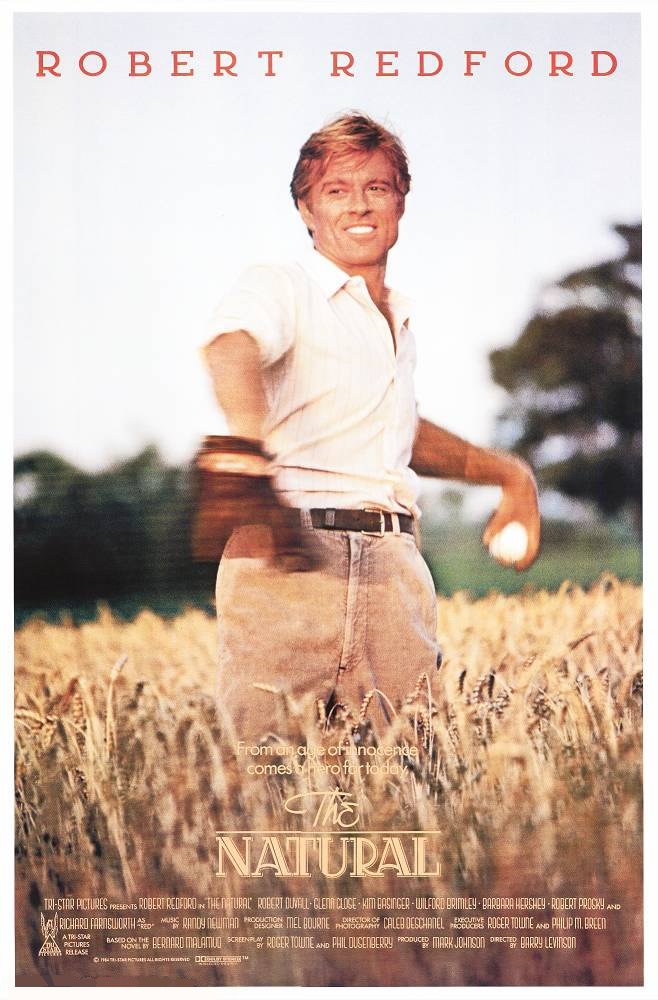 “The Natural” (1984)
“The Natural” (1984)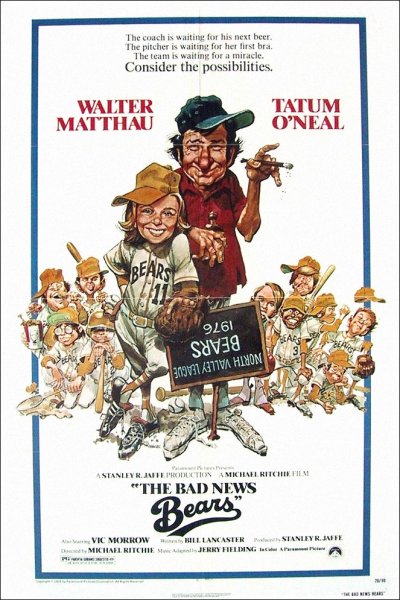 “The Bad News Bear” (1976)
“The Bad News Bear” (1976) “Naughty Nineties” (1945)
“Naughty Nineties” (1945) “Pride of the Yankees” (1943)
“Pride of the Yankees” (1943) You have to admire George Clooney. As an actor, write and director, he does what he wants and he does it with style, wit and intellect. His clout gets important, challenging projects made that otherwise wouldn’t, and even when he does lighter fare he often goes against the mainstream grain.
You have to admire George Clooney. As an actor, write and director, he does what he wants and he does it with style, wit and intellect. His clout gets important, challenging projects made that otherwise wouldn’t, and even when he does lighter fare he often goes against the mainstream grain.  “21,” the fact-based story of a group of M.I.T. students who took Vegas for all it was worth by putting their brilliant minds to use counting cards in blackjack, is a good movie that could’ve been great. Much like sin city itself, it has style and attitude to spare, but lacks substance.
“21,” the fact-based story of a group of M.I.T. students who took Vegas for all it was worth by putting their brilliant minds to use counting cards in blackjack, is a good movie that could’ve been great. Much like sin city itself, it has style and attitude to spare, but lacks substance. 